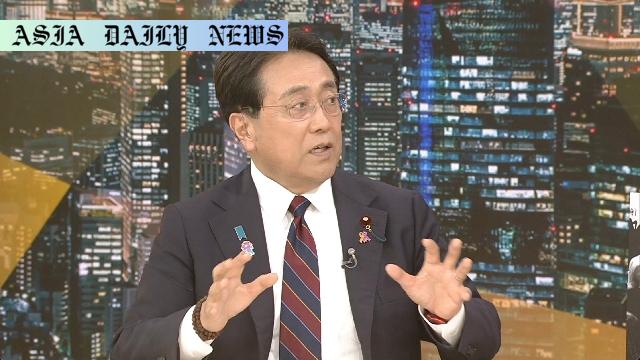Tariffs: Japan negotiator pushes for executive orders to reduce trade tariffs with the U.S.
Japan negotiator Akazawa Ryosei urges President Trump to issue executive orders to reduce tariffs on Japanese imports.
Trade agreement results in 10 percentage point tariff reductions, avoiding potential Japanese losses of 10 trillion yen.
Japan to invest 550 billion USD in economic security through financial institutions during Trump’s presidency.

Japan Negotiates to Reduce Tariffs with the U.S.
Japan’s top trade negotiator, Akazawa Ryosei, has taken significant steps towards ensuring fair trade terms for Japanese exports in discussions with U.S. President Donald Trump. These efforts aim to secure a favorable environment for Japanese industries and protect their financial interests. During a recent NHK news program, Akazawa highlighted the key achievements of this critical negotiation process.
One of the significant breakthroughs in the agreement was securing a 10% reduction in tariffs that were previously set to be imposed on Japanese goods starting in August. Akazawa emphasized that this move prevented Japan from incurring losses amounting to approximately 10 trillion yen. This development showcases Japan’s proactive approach in navigating challenging trade dynamics under the Trump administration.
Strengthening Bilateral Economic Security
Akazawa also discussed an ambitious plan involving up to 550 billion USD (around 80 trillion yen) allocated for projects aimed at enhancing bilateral economic security. The funds will be disbursed through government-affiliated institutions such as the Japan Bank for International Cooperation. This financial commitment underscores Japan’s strategic intent to bolster its ties with the United States while addressing mutual concerns related to economic stability and growth.
While outlining the details of investment, loans, and guarantees, Akazawa stated that only a small portion—1 to 2 percent—of the total allocation would be categorized as investments. He assured that careful planning and prudent investment practices would characterize Japan’s approach during Trump’s presidency.
The Significance of Proactive Diplomacy
Akazawa’s assertive negotiation style was instrumental in securing this agreement. By engaging directly and frequently with President Trump, he ensured that Japan’s concerns were heard and addressed. This approach demonstrates the importance of clear communication and active participation in high-stakes diplomatic scenarios.
Notably, Akazawa dismissed the idea of drawing up joint documents, suggesting that the focus should instead be on urging President Trump to issue executive orders to formalize tariff reductions. This pragmatic strategy reflects Japan’s commitment to actionable results over symbolic gestures.
Broader Implications of Trade Agreements
The broader implications of this agreement extend beyond Japan’s immediate financial benefits. By mitigating potential economic losses and fostering stronger trade ties, Japan has set a precedent for other nations dealing with similar trade challenges. This development also highlights the importance of adaptability and innovation in navigating complex international trade dynamics.
As nations strive to strike a balance between protecting domestic industries and fostering international partnerships, Japan’s approach serves as a valuable example. The successful negotiation of favorable terms with a key global player like the United States underscores the transformative power of diplomacy and strategic foresight.
In conclusion, Japan’s proactive and strategic approach in reducing tariffs and fostering stronger bilateral relations with the United States has yielded significant financial and political advantages. These developments not only safeguard Japan’s economic interests but also contribute to the broader goal of global economic stability.



Commentary
Japan’s Diplomatic Strategy – A Display of Proactive Leadership
Japan’s recent success in advocating for tariff reductions is a testament to the power of assertive and well-planned diplomacy. Akazawa Ryosei’s relentless approach during negotiations with President Trump sets a strong example of how nations can pursue their interests effectively while respecting the dynamics of international relations.
What stands out most in these negotiations is Akazawa’s active and engaging style. By consistently raising his concerns and ensuring they were addressed, he demonstrated the importance of persistence and clarity in diplomacy. In an era where global trade agreements often face political and economic hurdles, such determination is vital for achieving tangible outcomes.
The Economic Ramifications of the Trade Deal
The prevention of a 10 trillion yen loss for Japan is no small feat. This success illustrates the critical role that trade policy plays in safeguarding national economies. By reducing tariffs, Japan not only protects its exporters but also ensures that consumers benefit from better trade conditions. This approach also creates a ripple effect, encouraging other nations to pursue fair and balanced trade agreements.
The allocation of 550 billion USD for joint economic projects further highlights Japan’s commitment to strengthening its bilateral relationship with the United States. This move not only promotes economic security but also builds trust and collaboration between the two nations.
The Importance of Direct Action in International Relations
One notable aspect of Akazawa’s strategy is the emphasis on direct action, such as advocating for executive orders, rather than relying on joint declarations or symbolic gestures. This pragmatic approach is a reminder that diplomacy must prioritize actionable outcomes over formalities to address pressing economic challenges effectively.
In conclusion, the Japan-U.S. trade negotiations provide a valuable case study in the power of diplomacy, strategic planning, and proactive leadership. As global trade continues to evolve, these lessons will undoubtedly remain relevant for policymakers and leaders worldwide.